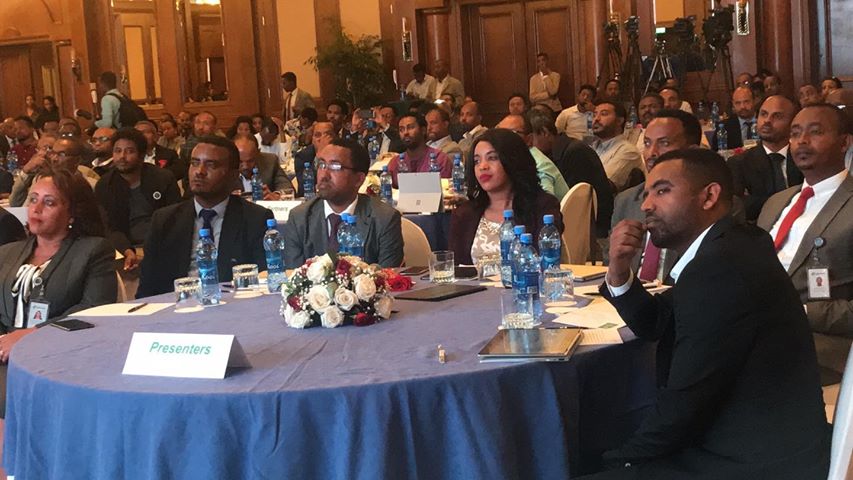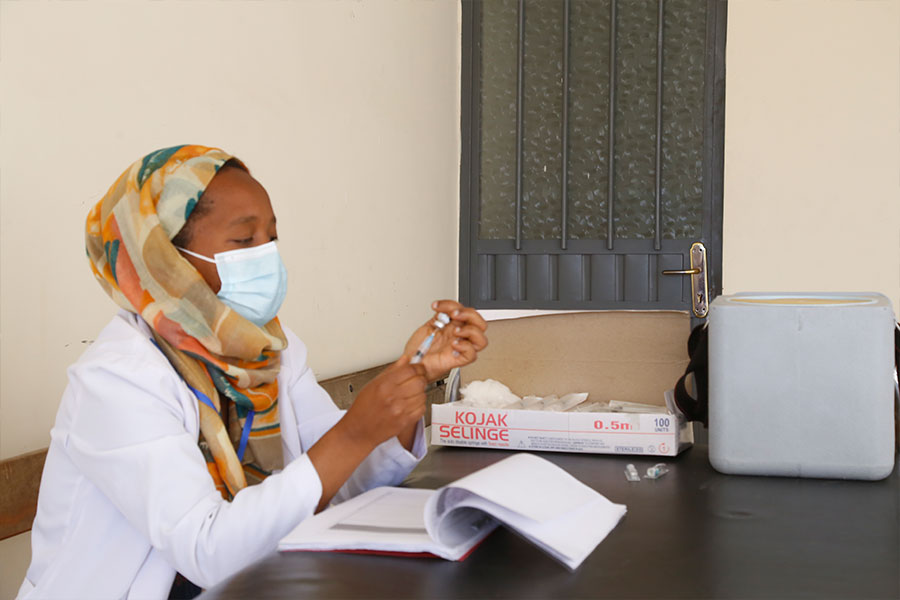
Radar | Dec 12,2020
The allocation and use of land to erect telecom infrastructure is to be standardized as the industry is going through a liberalisation process, allowing space for competition. Officials at the Ethiopian Communications Authority, the industry's regulatory body, are contemplating intervening to formalise the varied procedures across regional states.
The lack of uniformity has presented challenges to operators. The state-owned Ethio telecom has trouble finding spaces for structures like towers, with the problems unresolved as it attempts to expand out of urban areas. In towns and cities, the Ethio telecom sets up towers on building tops, which are not easy to come by in less urbanised areas, forcing it to seek land from the respective state administrations.
Ethio telecom officials see infrastructure development in rural areas not as profitable but expanding service access, according to a response from the communications department. High fees can also impact the cost of service delivery. Land acquisition and relocation are major challenges facing the Ethio telecom.
The Authority has its legal experts drafting a directive that enforces standards in the industry. It aims to avoid inconsistencies, says Balcha Reba, director-general of the Authority, established in 2019.
An operator submitting a request for space allocation will be required to include documents specifying the type, height, and location of the infrastructure to be erected, as well as the size of the space required. However, permissions to certain locations require special authorisation from the authorities. For areas close to airports or airstrip zones, the Ethiopian Civil Aviation Authority will be tasked to handle requests. The Ministry of Defense or the National Intelligence & Security Services will be responsible for reviewing requests for areas in proximity to military bases and installations.
The directive outlines that requests are to receive a reply within 10 days. If the responsible authorities fail to meet the cutoff, the operator can file a complaint with the Authority, mediating between the parties.
Telecom operators are required to prioritise government or public buildings when erecting towers on rooftops, followed by commercial buildings and private properties. Operators permitted to install telecom towers on rooftops of residential buildings are required to obtain a structural safety certificate.
A uniform fee will be instated to avoid disputes between operators and the authorities, according to Balcha.
He believes this will help address challenges the incumbent Ethio telecom already faces and allow Safaricom Ethiopia Plc to build and expand its operations once it starts operations. The operators will need to negotiate with either Ethiopian Electric Power or Ethiopian Electric Utility to use electric infrastructure.
Safaricom signed a five-year lease agreement with Ethiopian Electric Power to share dark fibre optics earlier this month. The first phase of the lease includes over 4,000Km of an optical ground fibre network. Two weeks ago, the telecom operator and Ethiopian Electric Utility signed an additional lease agreement. The agreement entails areal fibre installation through the existing electric pole infrastructure.
An infrastructure agreement established before the directive's issuance is to be governed by the terms of the agreement.
In Addis Abeba, space is allocated based on the land lease law of 2011. Requests are reviewed by the land management bureau of the districts where the infrastructure is built. A state-owned enterprise, Ethio telecom gets land with the bottom cap of the leasing fee, according to Habtamu Tesfaye, a member of a team under the Addis Abeba Land Management Bureau in charge of transferring land for the development of telecom infrastructure.
Ethio telecom usually requests 169sqm plots for tower construction, though lease prices differ based on location, according to Habtamu. Private operators are required to follow the same procedure.
“No request has yet come from Safaricom Ethiopia,” Habtamu told Fortune.
Two months ago, Safaricom's executives expressed desires to share up to 80pc of the 7,100 towers Ethio telecom operates and part of its 22,000Km fibre optics network. The telecom operator, which paid 850 million dollars for a 15-year license last year, is also moving ahead with its infrastructure development project, having contracted Nokia and Huawei. Safaricom Ethiopia has built around 30 sites in Addis Abeba and an additional 30 in urban centres such as Dire Dawa and Bahir Dar.
A few months ago, its executives announced their plans to develop tower infrastructures on building-tops and import materials for its operations. It plans to build 400 sites in the capital over the coming year.
Habtamu suggests that the Communications Authority's directive be compatible with the existing lease regulations.
Right-of-way issues often arise in infrastructure development as telecom infrastructures are often erected in and around residential areas. The Addis Abeba City Administration uses a proclamation issued in 2006, which dictates the operator pay compensation, to resolve them.
PUBLISHED ON
Mar 26,2022 [ VOL
22 , NO
1143]

Fortune News | Feb 27,2020

Fortune News | Aug 29,2020

Radar | Jul 27,2019

Fortune News | Nov 13,2021

Radar | Sep 08,2019

Dec 22 , 2024 . By TIZITA SHEWAFERAW
Charged with transforming colossal state-owned enterprises into modern and competitiv...

Aug 18 , 2024 . By AKSAH ITALO
Although predictable Yonas Zerihun's job in the ride-hailing service is not immune to...

Jul 28 , 2024 . By TIZITA SHEWAFERAW
Unhabitual, perhaps too many, Samuel Gebreyohannes, 38, used to occasionally enjoy a couple of beers at breakfast. However, he recently swit...

Jul 13 , 2024 . By AKSAH ITALO
Investors who rely on tractors, trucks, and field vehicles for commuting, transporting commodities, and f...

Oct 25 , 2025
The regulatory machinery is on overdrive. In only two years, no fewer than 35 new pro...

Oct 18 , 2025
The political establishment, notably the ruling party and its top brass, has become p...

Oct 11 , 2025
Ladislas Farago, a roving Associated Press (AP) correspondent, arrived in Ethiopia in...

Oct 4 , 2025
Eyob Tekalegn (PhD) had been in the Governor's chair for only weeks when, on Septembe...